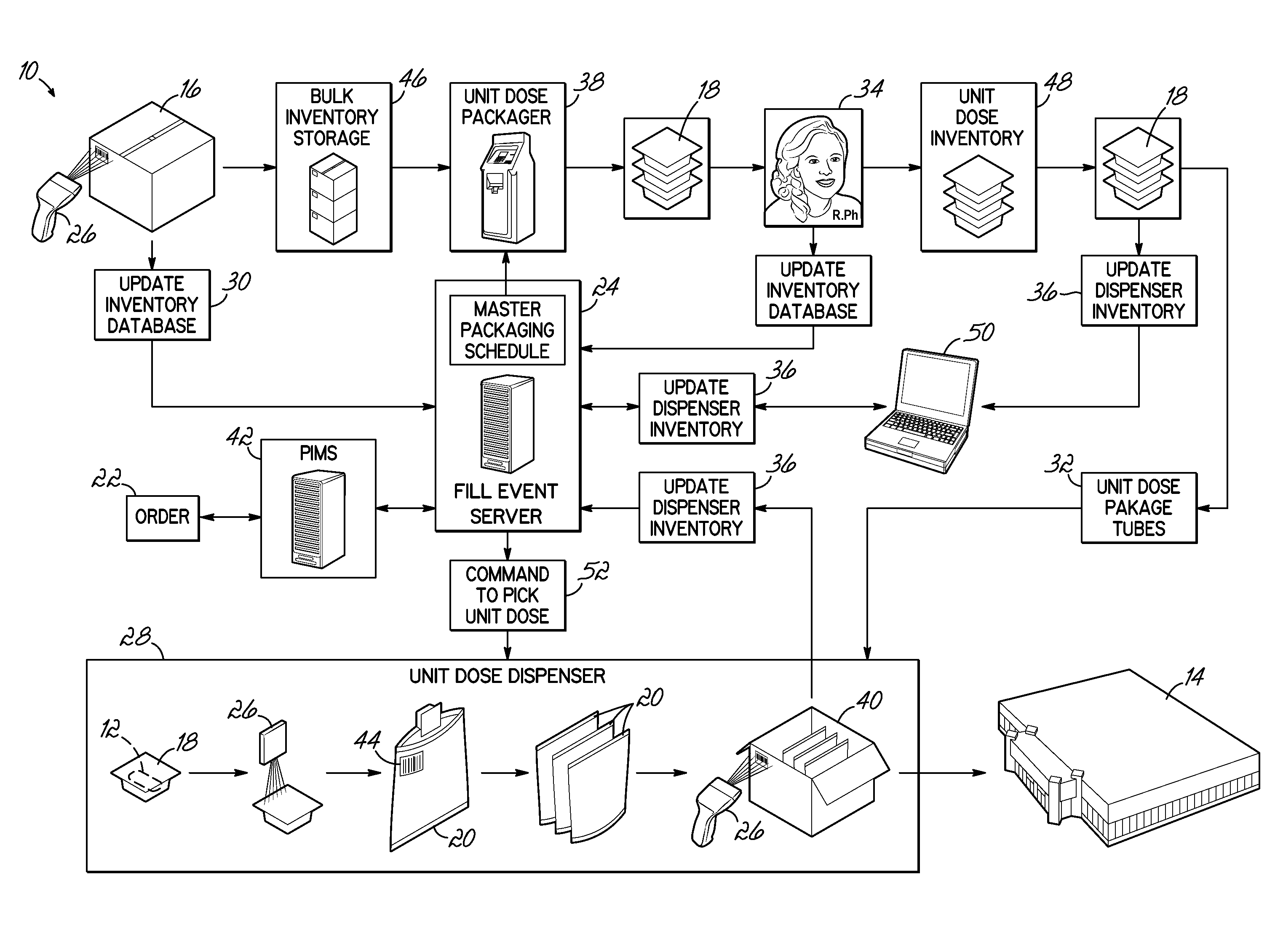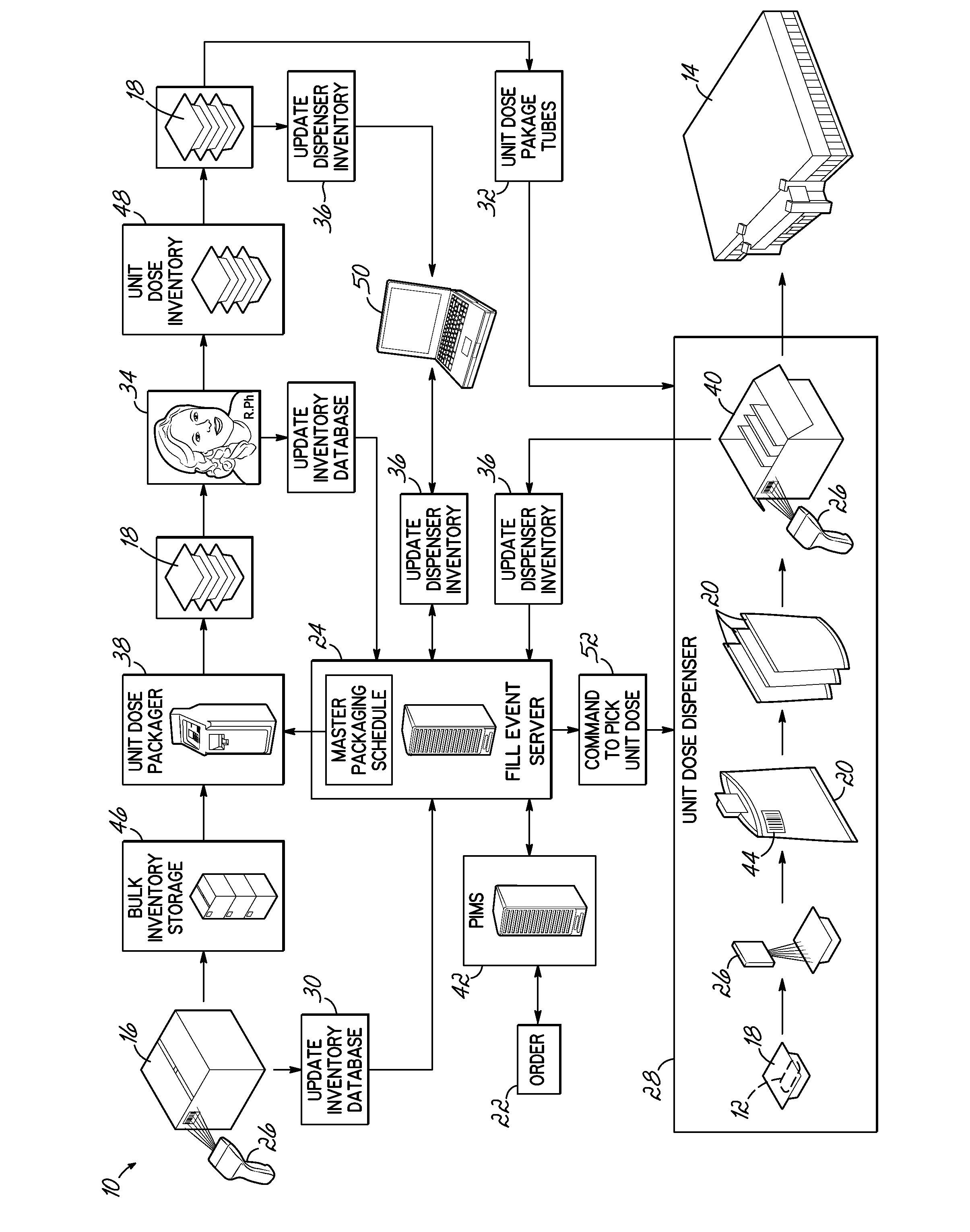System and methodology for filling prescriptions
- Summary
- Abstract
- Description
- Claims
- Application Information
AI Technical Summary
Benefits of technology
Problems solved by technology
Method used
Image
Examples
Embodiment Construction
[0023]The detailed description exemplifies specific embodiments of the invention which are described in sufficient detail so as to allow a person of ordinary skill in the art to practice the invention without undue experimentation. It will be appreciated that the apparatus and associated method may vary as to configuration and as to details of the parts and steps without departing from the basic concepts as disclosed herein. While the invention is susceptible to various modifications and alternative forms, a specific embodiment thereof is shown by way of example in the FIGURE and will herein be described in detail. It should be understood, however, that there is no intent to limit the invention to the particular form disclosed, but on the contrary, the invention is to cover all modifications, equivalents, and alternatives falling within the spirit and scope of the invention as defined by the claims.
[0024]Referring to the FIGURE, this invention is generally directed to a process or m...
PUM
 Login to View More
Login to View More Abstract
Description
Claims
Application Information
 Login to View More
Login to View More - R&D
- Intellectual Property
- Life Sciences
- Materials
- Tech Scout
- Unparalleled Data Quality
- Higher Quality Content
- 60% Fewer Hallucinations
Browse by: Latest US Patents, China's latest patents, Technical Efficacy Thesaurus, Application Domain, Technology Topic, Popular Technical Reports.
© 2025 PatSnap. All rights reserved.Legal|Privacy policy|Modern Slavery Act Transparency Statement|Sitemap|About US| Contact US: help@patsnap.com


